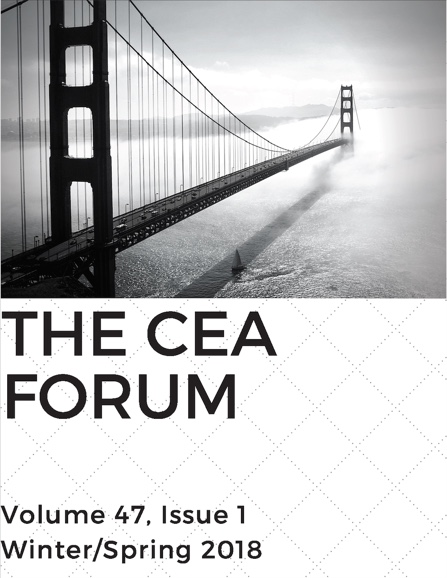Building up Jerusalem in the Classroom: William Blake and Writing Pedagogy
Keywords:
classroom techniques, specificity, modeling, class discussions, William Blake,Abstract
William Blake’s poetry seeks to inspire readers to participate in the construction of an intellectual community that he calls “Jerusalem.” This article examines the strategies that Blake advocates in his long poems for fostering such a community, and it illustrates the utility of such approaches in the classroom. Closely reading passages from Blake’s epics, the article locates three pedagogical techniques that work especially well in writing and literature classes: guiding students in increasing the specificity of their thinking, modeling for them effective habits that they can adopt in their writing, and prompting students to escape their own subjective vantage point in order to engage in a dynamic exchange of ideas with others. Drawing on the author’s experience, the article explores the ways in which these approaches can be implemented. Such methods include assigning creative writing exercises, helping students refine generalities in their essays, using the very structure of classes to model effective thinking and writing, and facilitating one-on-one discussions between students based on the “minute particulars” of their research papers. Ultimately, the article suggests that aiding students to “converse together” as an intellectual community encourages the development of virtues that are vital to bringing Blake’s vision of a cooperative utopia increasingly into reality.Downloads
Published
Issue
Section
License
Authors who publish with this journal agree to the following terms:
1. Authors retain copyright and grant the journal right of first publication with the work simultaneously licensed under a Creative Commons Attribution License that allows others to share the work with an acknowledgement of the work's authorship and initial publication in this journal.
2. Authors are able to enter into separate, additional contractual arrangements for the non-exclusive distribution of the journal's published version of the work (e.g., post it to an institutional repository or publish it in a book), with an acknowledgement of its initial publication in this journal.
3. Authors are permitted and encouraged to post their work online (e.g., in institutional repositories or on their website) prior to and during the submission process, as it can lead to productive exchanges, as well as earlier and greater citation of published work.


